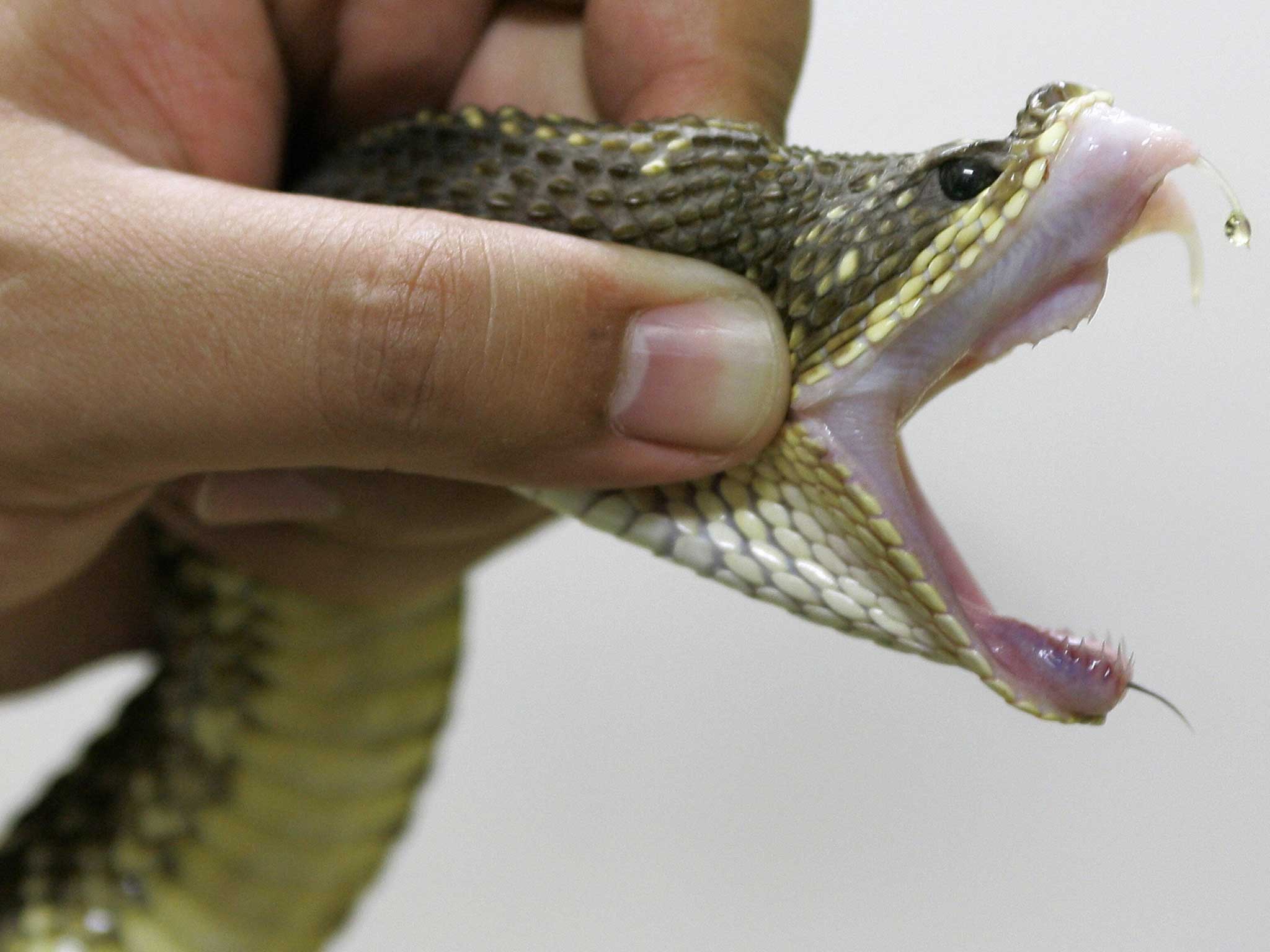Scientists developing universal snake bite anti-venom
Researchers at Liverpool School of Tropical Medicine hope to use new technique 'antivenomics' to find solution

Your support helps us to tell the story
From reproductive rights to climate change to Big Tech, The Independent is on the ground when the story is developing. Whether it's investigating the financials of Elon Musk's pro-Trump PAC or producing our latest documentary, 'The A Word', which shines a light on the American women fighting for reproductive rights, we know how important it is to parse out the facts from the messaging.
At such a critical moment in US history, we need reporters on the ground. Your donation allows us to keep sending journalists to speak to both sides of the story.
The Independent is trusted by Americans across the entire political spectrum. And unlike many other quality news outlets, we choose not to lock Americans out of our reporting and analysis with paywalls. We believe quality journalism should be available to everyone, paid for by those who can afford it.
Your support makes all the difference.Scientists are working towards creating a universal anti-venom for all the deadly snakes in sub-Saharan Africa.
Researchers from the Liverpool School of Tropical Medicine (LSTM) are using a new technique called ‘antivenomics’ to increase the potency of venom extraction, which has traditionally had a low success rate due to the weakness of the venom taken.
A breakthrough could save tens of thousands of lives every year. Snake bites kill 32,000 people, and permanently disables 96,000 more, every year in sub-Saharan Africa.
The head of LSTM’s Alistair Reid Venom Unit, Dr Robert Harrison said: “There are over 20 species of deadly snakes in Sub-Saharan Africa and doctors often rely on the victim’s description of the animal to help them decide which treatment to administer”.
Faced with limited information, doctors frequently decide to give snake-bite patients broad-spectrum, or poly-specific, antivenom to cover all the possible snake species – but this is an expensive option often not available to the poorer subsistence farmers who make the bulk of victims.
This method also increases the chances of serious side effects.
Anti-venom medicines remain limited thanks to the method by which they are extracted – which LSTM hopes to change.
Currently, venom is extracted from several species before being injected – in low doses – into livestock. The animals produce antibodies which are purified from the blood to create anti-venom.
As only small amounts of venom, from different snakes, can be used the end result is very weak. LSTM, in partnership with Instituto Clodomiro Picado, San Jose, Costa Rica and the Institute de Biomdedicina de Valencia, Spain, hopes to change this.
Join our commenting forum
Join thought-provoking conversations, follow other Independent readers and see their replies
0Comments